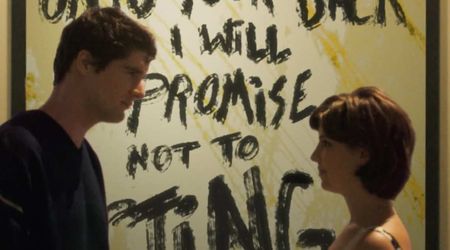Netflix repeats mistakes of 'Cuties' with 'Grand Army' making second season of show uncertain

It's the pandemic season, people are bored, and 'cancel culture' is all the rage. Initially, Netflix seemed to be riding the wave well - mixing economics with woke politics. It responded beautifully in the initial months of 2020, tweeting about hiring more Black creatives and giving LGBTQ stories and characters their due. In essence, it 'got' the Gen Z zeitgeist of wanting diverse stories that represented them as a generation rather than the het-cis-White norm that network TV is yet to shake off.
So what happened with 'Grand Army'? On the surface, it was the perfect show. It spoke to immediate concerns from how Black kids were disproportionately affected by 'zero-tolerance' policies at schools, to locker room talk and slut-shaming, to a triumphant 'coming out' story. There were missteps, but on the whole, the series, especially towards the end episodes really came together and ended in a really powerful moment of student protest. It was supposed to be the gritty replacement for 'Euphoria' fans.
But just like 'Cuties' was doomed even before release, so was 'Grand Army'. Both were caught out for doing the opposite of what they were claiming to do. 'Cuties' was about how the hyper-sexualization of women's bodies, especially young, 'barely legal' bodies in mass media, pornography, and culture had also led to young girls sexualizing themselves. It is a valid argument that was first torpedoed by Netflix's insensitive marketing of the film and then by accusations against the director exploiting the young actors in her film to make a point. How true that is another matter. But the result was after an initial bump in viewership figures because of the controversy there was also an avalanche of Netflix subscription cancelations. A whopping 48 percent strongly agreed the film shouldn't be on a widely-available streaming platform like Netflix in a survey.
The question being asked was this - how could a film, denouncing child sexualization, paradoxically feature child sexualization? There was a bit of damage control with Netflix tweeting an apology about its promotional posters for 'Cuties', but the damage was done even before the movie was released. What people 'knew' about the film before it released subsequently framed the entire discourse about the film.
Similarly, just as the 'Grand Army' trailer released with its woke, on-brand images and sound bytes with its young cast of actors, one of the series' writers, Ming Peiffer, tweeted about how she and two other writers of color quit the show over "racist exploitation and abuse." Peiffer alleged that she and the other writers quit specifically after trying to change Dom's storyline into something other than "poverty porn." Peiffer further revealed in follow up tweets that Katie Cappiello, the White showrunner had gone "full Karen" on a Black writer, calling in Netflix HR to force her to have a haircut.
Subsequently, almost every pre-publicity article for the show mentioned this because the show was marketed as a show about Black and POC teens. Everything from its trailer to the synopsis emphasized its diversity and inclusive credentials. The tweet controversy showed that it was paradoxically un-inclusive and racist behind the scenes. Just like 'Cuties', this pre-framed the conversation about 'Grand Army' because the show's 'woke' politics were seen as hypocritical. The dissonance meant that 'Grand Army' never cracked the Top 10 Netflix's show list hovering at the bottom before disappearing.
When Netflix greenlit the show, it was expanded to include more diverse storylines than the original play about rape and slut-shaming centered around a White protagonist. Netflix also realized that it needed diverse voices in the writers room, hiring writers of color. But when problems cropped up and if Netflix HR was being called about haircuts, why weren't the concerns of the writers of color addressed then? According to Peiffer, Netflix knew about the accusations, but simply hired more writers of color to replace them and didn't reach out until two years later to hear her and the other writers' original concerns.
After the show was released, Cappiello, Peiffer, and Netflix have all declined to comment. Peiffer is silent possibly because she is under some DND notice while Cappiello and Netflix are keeping quiet hoping it will all go away. The worse part is that we needed a show like 'Grand Army' talking about serious teenage problems that occur in non-segregated, underfunded public schools around race, gender. class, and sexual orientation. We needed their stories of struggle, strategies, triumphs, and failures critically, objectively, and without bias. We needed the teen version of what 'The Wire' attempted in its Season 4 while exploring public education. Instead, because of an ill-managed behind-the-scenes environment, we got a show that seems like it is co-opting stories of POC teens to create token diversity to pander to its woke viewers. But the dissonance between intent and product will put off that exact same audience as well.










